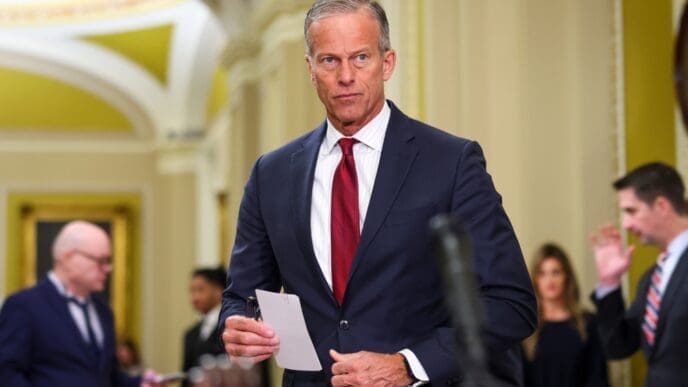The recent Supreme Court ruling has been highlighted by the Trump administration as a significant legal victory, as it permits the resumption of deportations under the Alien Enemies Act. This decision allows President Donald Trump to utilize the historical 18th-century wartime legislation to deport Venezuelan migrants accused of gang affiliations to a notorious prison in El Salvador. The president expressed his satisfaction with the ruling, but the court also mandated that individuals accused of being members of the Tren de Aragua gang must be given the opportunity to contest their deportations, a decision hailed by their legal representatives as a crucial win.
The deportation process, however, faces obstacles as it requires individuals to file challenges individually and within the district of their detention, primarily Texas. The Supreme Court is currently deliberating on another case involving an erroneously deported Maryland man, which could have implications for over 100 men already imprisoned in El Salvador under similar accusations.
The court’s decision lifted a restraining order that had previously blocked deportations under the Alien Enemies Act but stipulated that those accused must be notified and allowed reasonable time to argue their case before a judge. Despite this, families of several deported individuals maintain that their relatives are not gang members and should not have been expelled under this law. Attorney General Pam Bondi indicated that future hearings would likely occur in Texas, highlighting the expectation of dealing with each case individually rather than collectively.
Further complexity arises as the American Civil Liberties Union has initiated legal action on behalf of two New York-based immigrants allegedly misidentified as Tren de Aragua gang members, which puts them at risk of deportation. The Supreme Court’s ruling did not address the constitutionality of the Alien Enemies Act or determine whether the deported individuals fit the criteria for removal under this law.
The ruling also leaves unresolved questions concerning the over 100 individuals already deported to El Salvador without a chance to challenge their deportations, an opportunity now recognized as necessary by the court. In a related case, the administration has admitted to mistakenly deporting Kilmar Abrego Garcia, who was not subject to the act but faces likely persecution in El Salvador. Efforts to return him to the U.S. are ongoing, underscored by Chief Justice John Roberts’ decision to pause a deadline for his repatriation.
This case has become a contentious point in the Trump administration’s ongoing legal struggles, marked by the president’s calls for judicial impeachment, a stance refuted by Chief Justice Roberts as inappropriate. Judge Boasberg has been deliberating on whether to hold administration officials in contempt for non-compliance with his order to halt deportations, a decision potentially influenced by the Supreme Court’s recent ruling.
The Societal Shift
- The ruling underscores the complexity of immigration laws, highlighting the continued legal challenges faced by those accused of gang affiliations under the Alien Enemies Act.
- The decision mandates individual hearings for the accused, potentially increasing the burden on court systems, particularly in Texas, where many of these cases are being heard.
- For communities, this ruling may heighten awareness of immigration issues, potentially influencing public opinion and policy discussions surrounding deportations.
- The case brings attention to the broader implications of executive authority in immigration matters, prompting discussions on the balance of power between the government branches.
- Individuals affected by this ruling, especially those wrongfully deported, may face prolonged legal battles to secure their rights, impacting their lives significantly.














